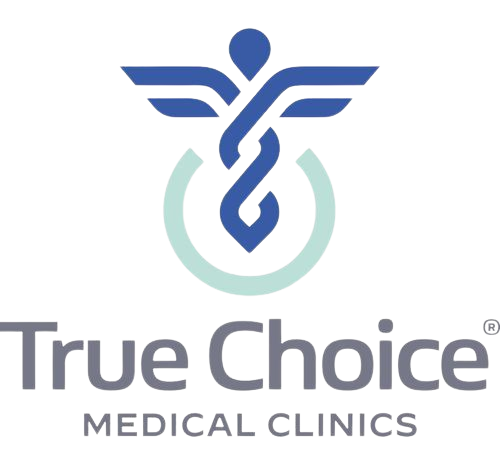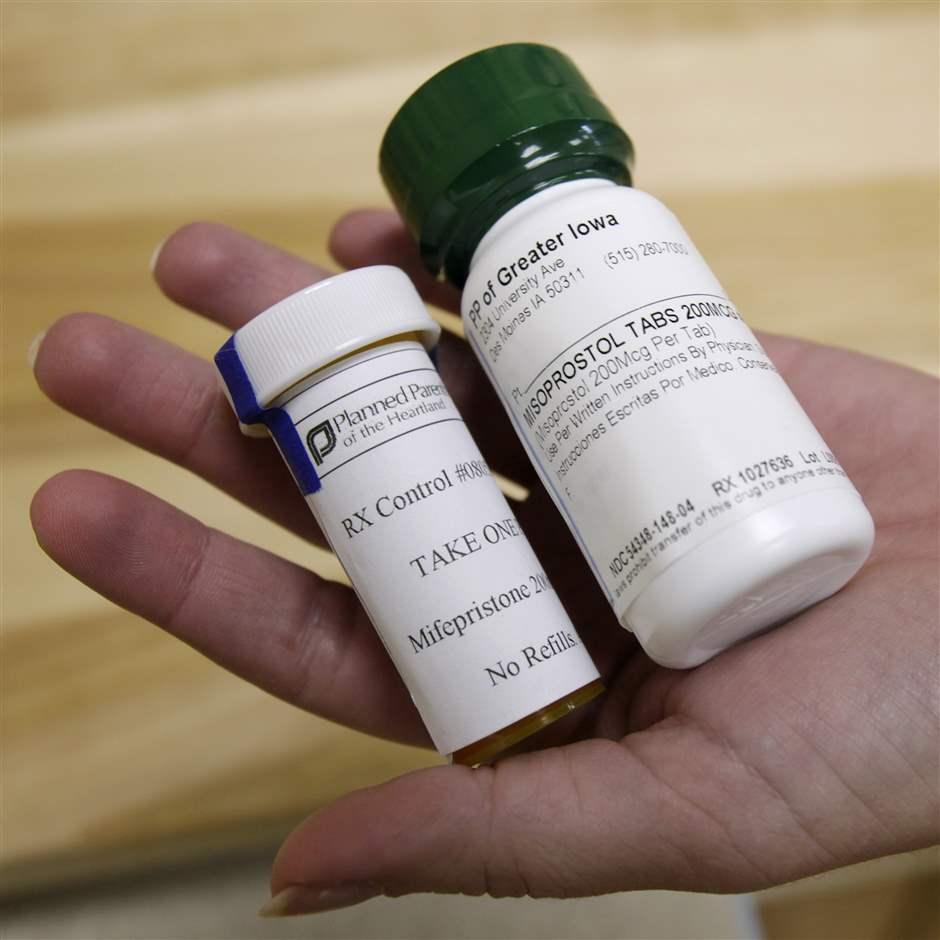What is a medical abortion?
The medical abortion pill is typically administered to women who are 10 weeks along or less. The pill is a two step process involving two different types of drugs: mifepristone and misoprostol. Together the two drugs force the body to abort the fetus. The whole process could take up to 12 days.
The drugs are typically prescribed by a doctor and taken by the patient at the home. The whole process is commonly very painful and doctors typically prescribe pain medication to manage the discomfort of the process. Not only is it physically painful, it can also be emotionally traumatizing to the patient since it is often done alone. Side effects include: heavy bleeding, headache, diarrhea, nausea, vomiting, and severe cramping.
The first drug, Mifepristone, also known as RU-486, blocks the body from producing a natural substance called progesterone needed for a pregnancy to continue.
The second drug, Misoprostal, causes the uterus to shed the fetus, and any tissue left over in the uterus by causing contractions to expel the tissues through the vagina.
The medical abortion pill can cause serious or life-threatening vaginal bleeding or infections. The bleeding is usually more severe when compared to surgical abortion. The vaginal bleeding, cramps, nausea and diarrhea can start anywhere from 2 hours to 24 hours after consuming the pill and can last 9 days to 30 days or longer.
Delivery Models for Telemedicine Medical Abortions
Delivery models have changed. Prior to COVID-19, patients would go to a nearby clinic and see a physician for pre-procedure labs, ultrasound, clinic or remote provider would determine eligibility, then the patient would take the first pill on sight and the second pill at home or the provider would mail both pills to patient, with a follow-up appointment.
Even prior to COVID-19, plans began to begin the “no test” delivery protocol which involves a brief video or phone consultation with a clinician, not necessarily a physician with no pre-procedure labs, ultrasound or confirmation of pregnancy by a medical provider. The patient now only has to show the clinician a home pregnancy test and state the last menstrual period. The abortion pills are mailed to the patient and the patient follows up by video or mail; there is no direct contact with a medical provider or licensed nurse for this process.
What are the Dangers of a Telemedicine Medical Abortion?
One should raise a red flag as to why “no-test” medical abortions are prohibited in 18 states and explicitly banned telemedicine for medical abortions in 5 states and why 13 states require prescribing physicians, not just trained clinicians, be physically present with the patient.
One should raise a red flag when the “no test” telemedicine abortion model is not an option in 14 states and ultrasounds and in-person counseling are required before receiving a medical abortion.
One should raisea red flag when the FDA will not lift risk evaluation and mitigation strategy restrictions from the manufacturer to prescribe and dispense the abortion pill by mail despite numerous calls.
The danger of an “at-home”, “no-test” medical abortion without an assessment, ultrasound, or provider present is that miscarriage and ectopic pregnancy are not confirmed so the patient does not know whether or not she has an actual healthy pregnancy that will continue before taking the abortion pill with risks of very serious, life-threatening short and long-term consequences including hemorrhage, failed abortion and infection on top of the miscarriage or ectopic pregnancy.
Confirm Your Pregnancy Before Making a Decision for Abortion.
Taking a home pregnancy test is not the most reliable method to confirm a pregnancy. To confirm a pregnancy, the woman should make an appointment for a pregnancy test confirmation by a medical professional.
The pregnancy test is only the first step; it does not serve as a valid confirmation of pregnancy. In order to determine if the pregnancy is healthy, an ultrasound should be performed by a trained medical professional.
This rules out ectopic pregnancy (growing outside of the uterus) or miscarriage. 25% of pregnancies end in miscarriage. This assessment is vital to know before a decision for abortion is considered.
True Choice Medical Clinics
At True Choice Medical Clinics, we prioritize a comprehensive health assessment, which includes the pregnancy test, ultrasound and counseling services.
We understand the integral part this plays in a woman’s pregnancy decision…
To schedule an appointment, please contact us by phone:(858) 397-1970 or via text (858) 822-9335.
Source:
Medication Abortion and Telemedicine: Innovations and Barriers During the COVID-19 Emergency




